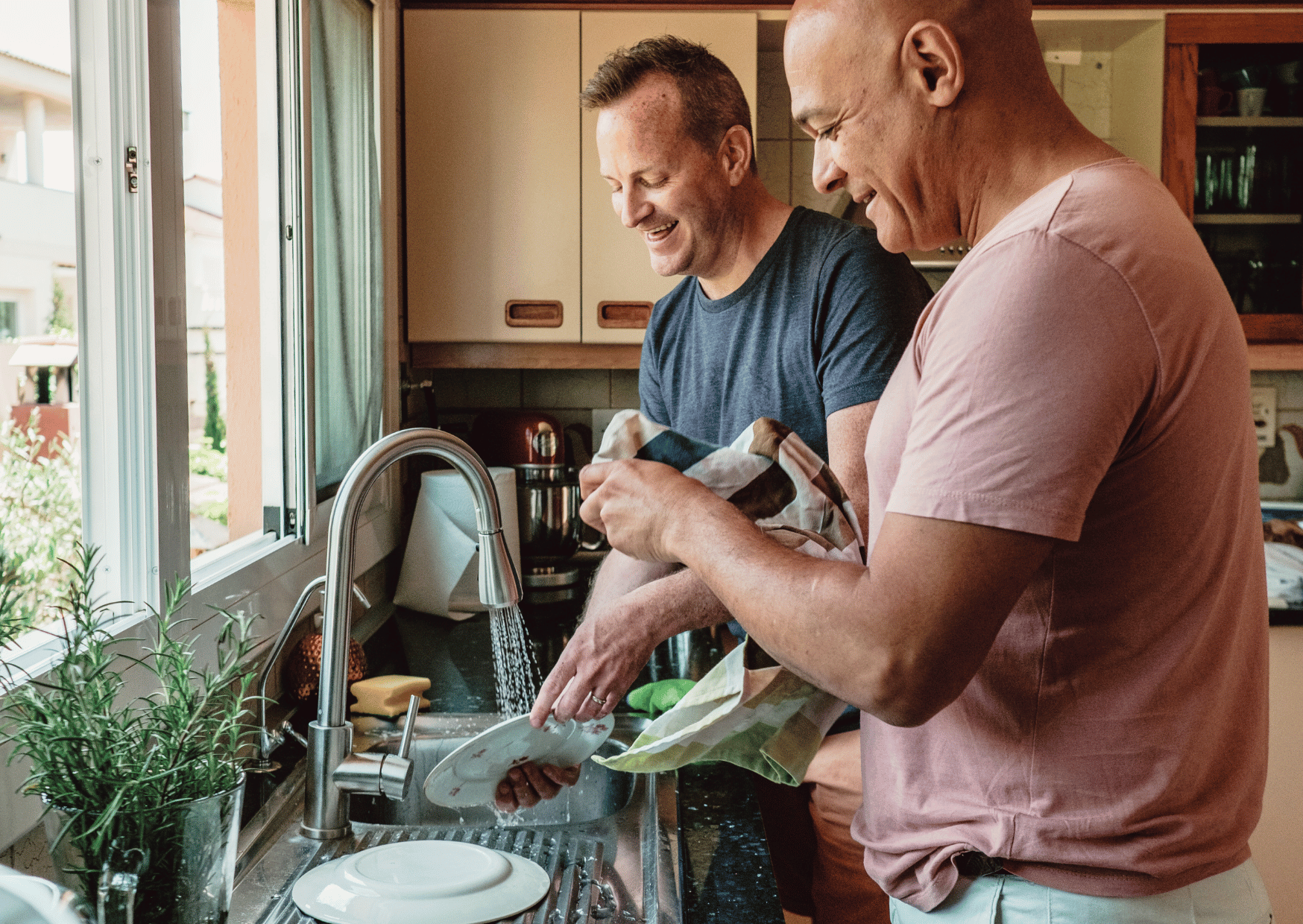Why Weekly Family Dinners Are a Game-Changer for Discipleship
If you’re looking for a natural, low-bar way to disciple others and live life on mission, you may be sitting on (or at) a goldmine—your dinner table.
For years now, my wife Tina and I have been living out our faith in the context of real, intentional community—not just “going to church,” but sharing life with others like family. And one of the simplest but most powerful rhythms in that life together has been: weekly family dinner night.
It’s not a program. It’s not a potluck. It’s a doorway into deeper relationship, healing, celebration, and gospel transformation.

What Is Family Dinner Night?
Each week, our extended family on mission—what we call our missional community or ‘Oikos’—gathers in a home for a shared meal. Everyone’s invited. Sometimes it’s thrown together last minute, sometimes it’s a themed dinner or even a birthday celebration. But it’s always rich in connection, laughter, and grace.
It’s not just about food. It’s about creating space for belonging.
Over time, this meal has become a sacred rhythm. Kids know it’s coming. Newcomers feel safe. People start opening up in ways they never would on a Sunday morning. Sometimes we take communion together. Other times, we speak the Good News over one another—pushing back shame or disappointment with gospel truths.
The table becomes a pulpit, a hospital, and a party—all in one.
Why This Simple Practice Matters
You might be thinking, This sounds nice, but is it really discipleship? Absolutely.
Here’s why:
- Meals are universal and disarming. Jesus did some of his deepest discipling over food.
- People let down their guard. As the food (and sometimes wine) flows and the dishes pass, so do the real stories.
- It’s reproducible. Anyone can host or contribute. No seminary degree required.
- It builds trust. Over time, people start showing up not just for the meal, but for the people.
In fact, some of our most meaningful moments of discipleship haven’t come from a Bible study or training—but from something someone shared between bites of pasta or while rinsing dishes together.
We’ve talked a lot about this kind of missional rhythm in Be The Church (from Caesar’s original Everyday Disciple archive). It’s about becoming the church together in everyday ways—not just attending one.

When the Two Worlds Meet
This kind of “open home” living does stretch us sometimes. I won’t lie.
There have been nights when Tina and I are enjoying a quiet glass of wine on the couch and… ding-dong—someone from our community is at the door.
And I’ll be honest: sometimes I answer the door, smile, and say something like:
“Hey brother, we’re laying low tonight. Unless it’s urgent, let’s catch up tomorrow.”
That kind of honesty only works in a culture of mutual trust and love. And here’s the thing: we’re not doing this to impress anyone. We’re doing it because it reflects the openness and hospitality of our heavenly Father.
And because we’ve already set the table—both literally and relationally—people know there’s a rhythm. They know they’re welcome… and they know we’ll say no if needed.
It’s both organized and organic. (When Real Life Meets Mission: Finding Freedom in Organized and Organic Rhythms)
“If my life is all about comfort and preferences, this way of life will feel like a threat. But when it flows from grace, it becomes a joy.”
 What Keeps Us from Doing This?
What Keeps Us from Doing This?
Most people aren’t against the idea of a weekly dinner with others. But they bump into a few roadblocks:
- “What if it’s awkward?” (It might be, at first. But food helps.)
- “What if people don’t reciprocate?” (You’re planting seeds.)
- “What if I burn out?” (Don’t do it alone. Share the hosting. Keep it simple.)
You don’t need to be Martha Stewart. You just need to show up. And if you’re already stretched thin, start once a month.
Here’s a brief video version you can share with your community
Ready To Go Deeper?
If you want to take things deeper and learn how to share the gospel story around the table (and beyond), I recommend Living & Telling the Story of God. It’s a practical, flexible course that helps you grow in gospel fluency and everyday mission.
FAQ
Q: How do I invite people without it feeling awkward or “churchy”?
Start with food, not an agenda. “Hey, we’re having people over for dinner Wednesday—want to join us?” Let the spiritual conversations flow naturally.
Q: What if my house is messy or small?
People value realness over polish. A crowded living room with paper plates can be more spiritually impactful than a formal dining room.
Q: What do we do if conversation stalls?
Try some simple questions: “What’s been life-giving for you this week?” Or ask, “Where have you seen grace show up lately?” Let the table be a place of stories.

